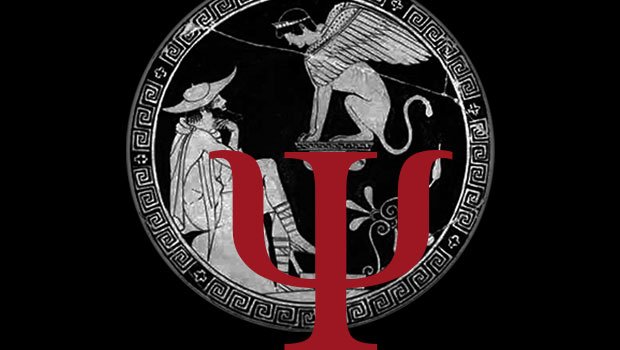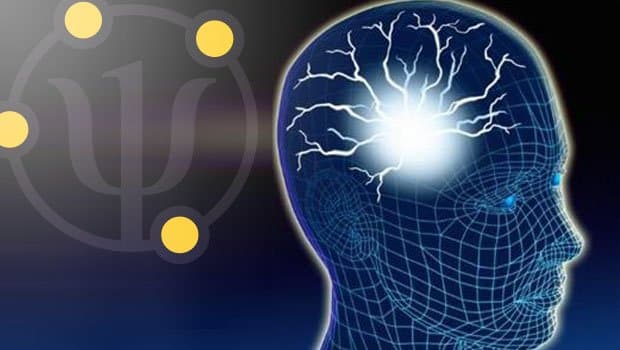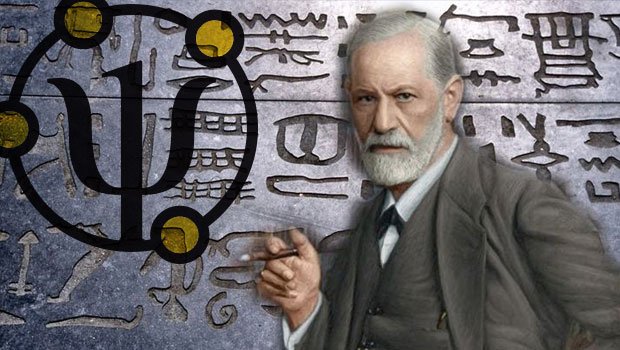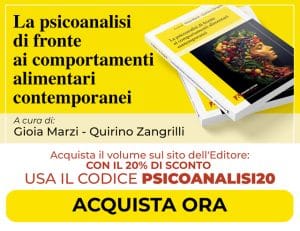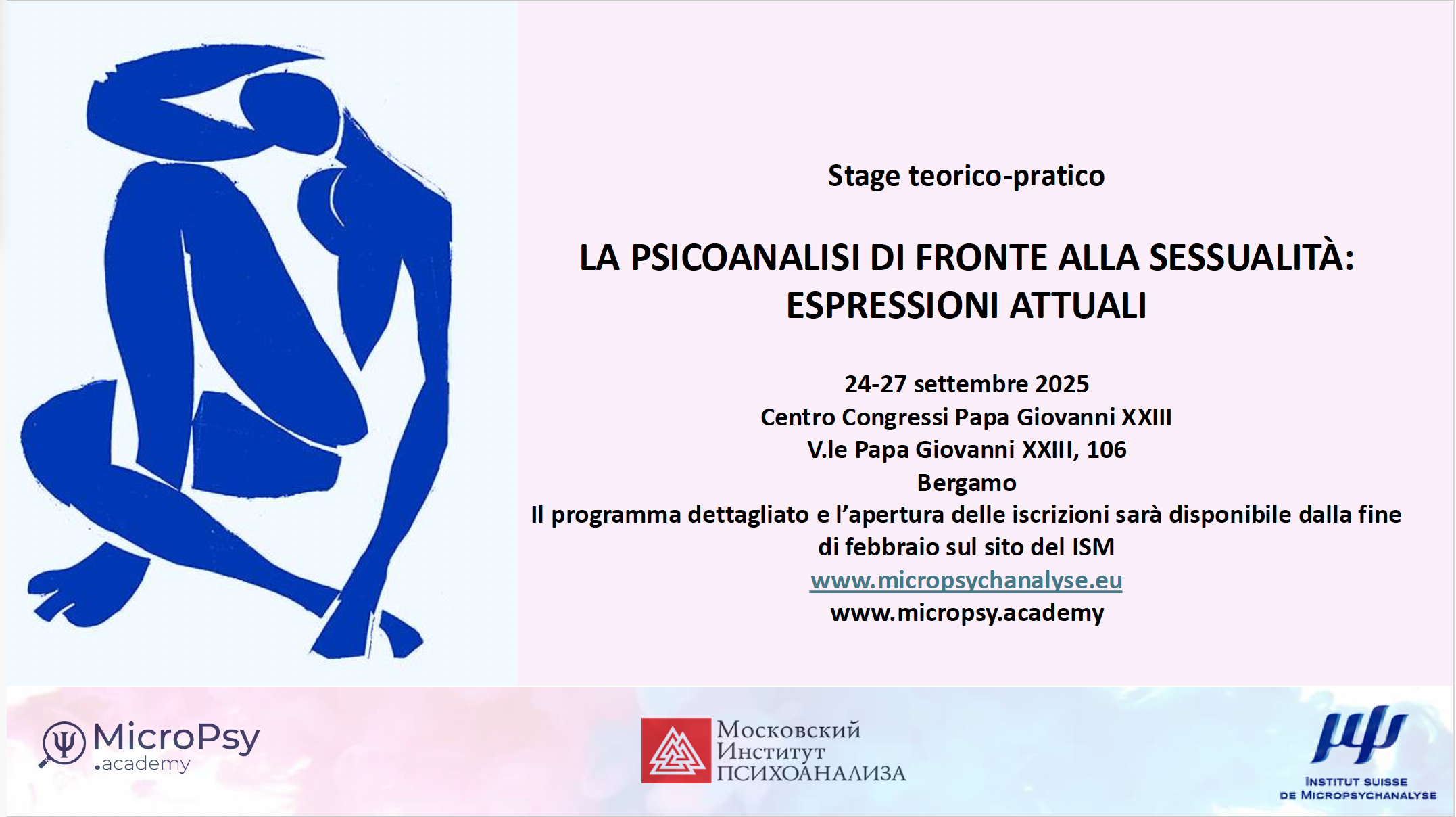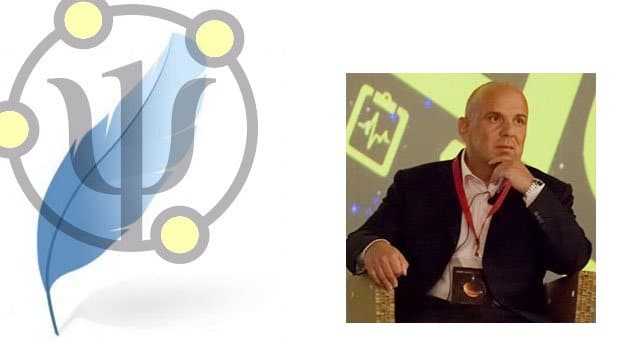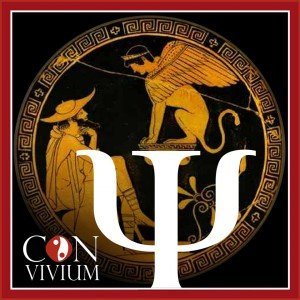
(Abstract of the Talk held by the Author at the Free Association “Convivium” in Ferentino, the 17th October 2015)
You will have without doubt noticed that Oedipus, and not “The Oedipus Complex”, is written in the title of the discussion of this Convivium. This is a deliberate choice. The term ‘complex’ has created much confusion regarding Oedipus, since it has been deformed by the common people.
Freud himself utilises it with several significances little by little as he creates his theory and he discovers its intimate facets.
Certainly in the popular meaning the term ‘complex’ makes one think of a pathological value.
In the “Sabatini Colletti Dictionary of The Italian Language” amongst the various definitions of the noun there are two which suit our case:
1 – Psychic situation, of the unconscious origin, derived from emotional conflict from the infantile age which disturbs an adult subject and provokes neurotic phenomena (definition which has been consolidated at a popular level for the Oedipus)
and
2 – A set of elements which interact: totality (definition which I would like to lead you to)
I will try to demonstrate, among other things, how the Oedipus-castration is not a pathology, but on the contrary a module of ancestral organisation of the human psychism, without which the human society as we know it would not exist.
I have written a very detailed article about the Oedipus myth entitled “Oedipus: Anthropomorphic Representation of The Vital Conflict” in which I analyse, step by step, the myth in the way that Sophocles has passed it on to us. Other very interesting articles on this topic have been written by Dr. Gioia Marzi and Dr. Pier Luigi Bolmida. But I’m not going to speak about the myth nor the literary work, which was after all, only a pretext for Freud.
It should be said, in fact, that Freud speaking about the Oedipus certainly did not want to take the place of the literary critics of that time, even though he was a literate of a very high level (he would then be honoured, in 1930, with the Goethe Prize of the City of Frankfurt, practically the most yearned for German literary prize).
Freud wrote for the educated classes of his time and he knew that anchoring himself to one of the greatest and solemn literary works of humanity, he would have touched the hearts of his readers.
I certainly do not want to devalue the extreme importance of the myth (it is sufficient to think of its universality, even in far and diverse cultural contexts) as sediment of universal phylogenetic experiences. I would like to underline in an absolute manner that the existence of the Oedipus-castration has been and is verified punctually in hundreds of thousands of observations which are made in scientific laboratories (the studios of the psychoanalysts). The material relative to the incestuous desire and to the correlated taboo always emerges, powerful and unequivocal, without any solicitation. The reiterated observation forces us to acknowledge that it is a psychobiological legislation of the human species.
I am sure to do him justice if I constantly use the binomial ‘Oedipus-castration’ since the component of desire and that of the sense of guilt with the correlated terror of castration are inseparable in the Oedipus.
Let’s start our discourse from the definition:
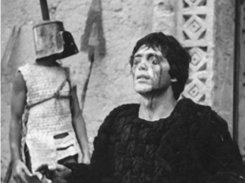
The desire, often but not only unconscious, of infantile origin (three to five years) of sexually possessing the parent of the opposite sex and of killing the parent of the same sex (since he or she is a rival) substituting the parents. Such a desire activates, due to the concept of an eye for an eye, the fear of being castrated, in other words, struck at the source of the desire.
This is the definition of the positive Oedipus. In the specular one the child desires an intimate relationship possessing the parent of his own gender and liquidating the heterosexual rival who competes with him for the object.
The term ‘complex’ should be intended literally as a set of correlated elements of this evolutive phase and all connected among themselves: phantasies, desires, anguishes, internal conflicts and relative mechanisms of defence. The little Oedipus is inserted in a triangular system of sexual-affective relationships regulated by desires and incompatibilities. The prohibition of incest specifically impedes the intimacy with the prime objects of love. The child is lacerated by the conflict between the prohibition of incest and the tumult of his own urges and by a series of anguishes connected to his phantasies, conscious and unconscious, of possessing the loved one and of freeing himself of his rival.
From a didactic perspective I would like to deal with the very practical aspects and the curiosities that are enlivened around the Oedipus-Castration.
Above all its unlikelihood; Freud bore it throughout his entire life. In his day simply saying that a sexual pre-puberal life existed was blasphemous. The christian hagiography depicted children as an emblem of purity: “Let the little children come to me…” said Christ, referring to their pure souls.
In reality, whoever is in my profession knows how powerful and active the sexual and aggressive instinctual pressures of children are: it is sufficient to observe the actions of their own true sadism, more or less efficiently dissimulated, the firstborn exert on the newly arrived to realise this.
Or the enormous passion of a child who has fallen in love with his mother or sister. I often tell my friends if children had the world in their hands and could act out their desires undisturbed, the humankind would have been extinct a long time ago.
The unlikelihood of the Oedipus existence derives from the anguish generated by admitting to ourselves the existence of infantile incestuous desires. Who knows how many of you, bewildered and astounded, have dreamt of sleeping with their own mother or father? Not to mention the frequency of dreaming of the death of beloved people!
It is Jocasta herself that reminds us of this in “Oedipus The King”:
Jocasta consoles Oedipus, not yet conscious of his sins but rendered restless by the words of the Oracle, hinting at a dream common to many men but according to her lacking in meaning:
How many a man before you,
in his dreams, has shared his mother’s bed!
Take such things for shadows, nothing at all
Live Oedipus, as if there is no tomorrow!
In truth the oblivion of the oedipal vicissitude is common to all of us and gives place to the so-called latency period that goes from the age of six to the explosion of the puberal sexuality: driven by a terrifying castration anguish the child realises a profound repression of the incestuous desires which very often can remain unconscious throughout his entire existence.
Regarding this point it is worth mentioning the isolation mechanism which consists in building an isolating covering around an insight, avoiding the connections of awareness with other concepts: the result is that the subject seems stupid. We are all literally bombarded by information about the so-called “Oedipus complex”, the problem is that it is true in the books but not in the real world, it is true for a friend but not for ourselves, it is true in the films but certainly not in society.
In the first session of an intensive psychoanalysis a young woman had already touched with emotion the memory of her incestuous pressures towards her father: she says she had always known about the Oedipus existence on a rational scale but she believed that it did not regard her, and then she adds: “Does this mean that I had a sexual desire towards my father? It’s not possible, I feel anguish, shame, I can’t see anything. It is like a shock . It’s almost as if it made me gag when I said it: a strange and horrible sensation. I have an enormous anguish, a sensation of disgust for myself, for the idea, about this thought. But at the same time it’s as if finally all this revulsion gives me the proof that it is so. I can really feel it. It is real. It’s as though this awareness is added to the memories that I have now and so everything changes. The awareness of having felt this emotion, of being capable to do so. Anyway it is sufferance because the image sickens me. I think of all the times I had this thought and I didn’t know it.”
With his usual efficacy Freud writes: “In front of the person in which that primordial desire from one’s infancy is manifested, we pull back horrified, with all the strength of the repression that these desires have undergone since then in our intimacy. Bringing to light in his psychoanalysis the fault of Oedipus the Poet forces us to become aware of our intimacy in which those impulses, even if repressed, are however present”. (S. Freud, The Interpretation Of Dreams, 1899)
In two articles featuring in the online review Scienza e Psicoanalisi, “If this is love… (The torment of the incestuous fixation)” and “Human Sexuality, Impotence and Frigidity. Psychodynamics Scheme” I have highlighted the harmful influence that the incestuous fixation determines in an adult’s affective life: if the fixation towards the mother or father is not physiologically dissolved and the libido is not able to direct itself towards other non family objects the taboo prohibition of incest will make the subject’s sentimental life impossible, and practising a gratifying sexual life will be almost impossible: the sabotage of the function, in other words the impotence, defends us from the acting out of the mortal sin.
The unawareness of the Oedipus-castration is the representation of the ignorance in which the entire event is sunk into for the adult: and the constriction of the Oracle that makes or should make the Hero immune from any blame, represents the recognition of the inexorability of the destiny that condemns each human being to experiment the Oedipus complex.
Another aspect is that which is defined “Oedipus ambivalence”: the aggressive pressure towards the rival will certainly be evident to all of you observing the intolerance, the rancour, at times the furious rage up to the acting out (this obviously depends on the Ego’s integrity) by the boys towards their fathers and the girls towards their mothers. But then the aggressiveness spreads like wild fire towards the other pole, that was previously loved and desired: we are rejects, the indifference of our parent towards our love is a lacerating wound and then hatred replaces the love.
Are you doctors? You can be sure your son will be a street artist! Are you street artists? Then your son will do everything possible to become a doctor, a nuclear physicist or an engineer. Allow me to jest but what I say is true.
Many of the irrational and self-destructive behaviours of teenagers and the young generation are fuelled by this undissolved hatred which harbours in the unconscious. The adolescents hurt themselves to punish us, split as they are between a sense of unlimited omnipotence, specific to the adolescence, and a compulsory pressure to differentiation.
Otherwise the hatred turns, by reaction formation, into a form of very rigid and ceremonial devotion, another form of impotence of existence.
Here we could make a pleasant digression about the explanation of the political position of the human being in the way in which it has characterised itself in the western world. The communist is he who is fixed to the homosexual alliance with his brothers against the controlling father: his existence is a compulsive claim regardlessly, an inextinguishable hatred towards the Greatest. They want to affirm the kingdom of the peers, in other words of the brothers, where everyone is equal, where, in other terms, no one can ever become like the castrator Father. But the ferocious hatred towards he who governs makes it practically impossible to sit on the throne: so much so that, at least where democracy exists, for the communist the Premier’s seat is a burning seat: if it is occupied by chance it will be left as soon as possible.
And the right? It is occupied by he who is able to identify himself totally with his father, or rather, more than an identification, a total prostration to his father to ingratiate himself with him. The result is an uncritical and total idealisation towards the leader of whom the greatness is shared.
There, I have managed to displease all the audience!

In the normal psycho-sexual development the human being is able to attenuate his fixation to the incestuous object, making his first progressive displacement, for instance from the mother to the teacher, then to the classmate and so on, managing therefore to attenuate feelings of guilt and the necessity of an expiation behaviour. But the triangular structure of the Oedipus remains active for all one’s life.
Let’s look at this material:
“A discomfort mixed with happiness that I used to feel has come to mind: seeing my mother and father that hug and kiss. On one hand I was happy on the other I was a little jealous.
Rather, that was the scene, as a child, that made me want to hug or kiss my father: if I didn’t see it I didn’t have the urge”.
Analysing this situation the patient will soon have the possibility to avoid building relationships in which the rival is always lurking and one looks for her even when she doesn’t exist, often creating her in order to find her.
In the meantime the pre-genital drives, which before were spread across several sources and erogenous areas, now begin their strenuous path of confluence to the genitals, even if some isles of libido fixation, great or small, remain on the erogenous zones which were previously invested; a phenomenon which, for example, fuels the foreplay of the sexual act and also fun variations on the theme.
Nicola Peluffo’s studies have shown us a disconcerting phenomenon: the true unconscious desire of human beings is to reproduce themselves by cloning (in fact we are practically close to the goal and the prospects seem unpredictable).
The cloning project, even the scientific one, has been powerfully fuelled by the secondary elaboration of the phantasy of reproduction by fission, in other words by the desire to create a human being identical to ourselves (the science-fiction films are multiple).
It is a fantasy which derives from a primary nucleus of a narcissistic fixation, and thus psychotic.

When we say that Oedipus is the love of a child towards his parent of the opposite sex and contemporaneously the rivalry with the parent of the same sex we give an anthropomorphic representation of the conflict between the two sexes.
The psychic experience of human beings is the following: I realise that I am not complete, I cannot reproduce alone, I cannot reproduce a being identical to myself. So I look, amongst the people that I come into contact with, for the one with whom I can reproduce myself because at a cellular level, I have in my psychism the omnipotent fantasy of identical self-reproduction. Of course, mating with the person I have chosen generates a conflict and activates some defences since such a person is not identical to me. My tendency would be in reality that of investing on an identical object, a twin, or however a being of the same sex. It is for this reason that homosexuality is not only a perversion but, even worse, a fixation to a narcissistic phase of the phylo-ontogenetic development.
The acceptance of the reproductive union with a human being totally different to ourselves, even from a morphological point of view, implicates the acceptance of the Other. The penetration of the Third in the fusional universe between mother and foetus and between mother and unweaned is essential to come out of a narcissistic semi-autistic condition.
It is from this point of view that Oedipus is a vital organiser.
It forces us to accept the presence and the diversity of the Other. For this reason that complex (intended as a set of elements searching for a more or less stable balance) defined as Oedipus-castration is the founding nucleus of the social organisation.
I will conclude, because of the little time remaining, with some considerations about castration. The experience and the terrific fear of castration in men and the specular one of the absence of the phallus in women are not only responsible for a large part of the sexual impotence in males and of the female frigidity. It is so deep that it is able to paralyse the very life of the individual who tries to disappear from the scenario. Many behaviours of sabotage of one’s own vital attempts are unconscious attempts to lose oneself in the background, to no longer exist, appear or be visible.
When the child ‘challenges’ his parent, as he is contending the female, a confrontation between weapons occurs: the swords of the duellists are the respective penises.
Now, imagine the dimension of an adult penis in erection and that of a three year old child’s penis.
Not only, since the complete desire of the Oedipus is that of getting rid of the rival by killing him, imagine a three year old (the age of the Oedipus explosion) statistically 92-94 cm tall, weighing around 15 Kg that combats to kill a being who is twice his height and who weighs 5-6 times more.
It’s as if an adult would have to fight against an animal 3.5 mt tall (in other words taller than a ceiling) that weighs 350-450 kg. I don’t know if I have made myself clear: it is like facing a Grizzly bear barehanded! Better still like a Cyclops, a giant with only one eye, exactly the same aspect of an adult penis, gifted with a unique eye (the orifice of the urethra).
Given that in the unconscious, time does not exist and the experiences remain untouched until they arrive at the awareness level, we can realise how paralysing fears can be of those who have a total oedipal fixation.
The specular fear in women is that of the dismemberment/disintegration since the challenge is to the mother who has contained us and materially made us: the fantasy is that in the same way she has made us she can just as easily liquefy us or deprive us of our reproductive system.
The confrontation between penises is the true reason of the widespread feeling of having a small penis that afflicts many men who are actually normal: in front of the Cyclops it is or will always remain a small thing.
Translated by Linda De Nardo
E’ autore di 74 tra libri e pubblicazioni scientifiche. Ha partecipato in qualità di relatore o di presidente di sessione a numerosi Convegni scientifici nazionali ed internazionali.
Il suo libro “La vita: involucro vuoto”, pubblicato da Borla nel 1993, è in adozione dal 1994 presso la Cattedra di Psicologia Dinamica dell’Università di Torino.
Nel 1994 gli viene assegnato il “Premio Nazionale Ciociaria per la Medicina”.
E’ l’ideatore e fondatore della rivista multimediale “Psicoanalisi e Scienza”, la più seguita rivista di psicoanalisi on line al mondo in lingua italiana (Fonte: Entireweb, Alexa, Google, Virgilio, Arianna., etc.). Nel 2012 partecipa come Relatore alla Rassegna Scientifica di BergamoScienza.
Nel 2013 espone i suoi studi sull’nterazione materno-fetale nella Sessione Speciale dell’ XI Congresso Mondiale di Medicina Perinatale a Mosca con la relazione “Intrauterine Imprinting”.
Nel 2024 riceve il Premio Accademico d’Onore della Accademia Culturale Internazionale Cartagine 2.0.
Nel 2024 docente ad Almaty – Kazakhstan presso il workshop di psicoanalisi sul tema della violenza, promosso dall’Università di psicoanalisi di Mosca in collaborazione con l’Istituto svizzero di micropsicoanalisi.
Nel 2025 pubblica come curatore il libro “LA PSICOANALISI DI FRONTE AI COMPORTAMENTI ALIMENTARI CONTEMPORANEI” presso Armando Editore
Nel 2025 pubblica il libro “PSICOANALISI DEL TRAPIANTO D’ORGANO – IL VISSUTO DELL’ALIENO” presso Armando Editore
Doctor Quirino Zangrilli was born in Fiuggi in 1955. Graduated with honours in Medicine and Surgery in 1980, he practices Psychoanalysis, with intensive method, since 1982.
He is author of 74 scientific pubblications. He has attended as speaker or president of session to many national and international scientific Conventions.
His book “La vita:involucro vuoto” (Life: empty involucre), published by Borla in 1993, has been in use by the Chair of Dynamic Psychology at Turin’s University since 1994.
He is the author and founder of the multimedia review “Psicoanalisi e Scienza” (Psychoanalysis and Science), the most read Italian on line review of psychoanalysis.
In 2012 he participated as a Speaker at the Scientific Festival of BergamoScienza.
In 2013 he illustrated his research on the maternal-fetal interaction in the Special Session of the XI World Congress of Perinatal Medicine in Moscow with his relation “Intrauterine Imprinting”.
He is visiting teacher at Moscow Institute of psychoanalysis and training psychoanalist of Swiss Institute of Micropsychoanalysis.
In 2024 he is a teacher in Almaty – Kazakhstan at the psychoanalysis workshop on the topic of violence, promoted by the Moscow University of Psychoanalysis in collaboration with the Swiss Institute of Micropsychoanalysis.
In 2024 he received the Honorary Academic Award of the Carthage 2.0 International Cultural Academy
In 2025 he published as an editor the book “PSYCHOANALYSIS IN THE FACE OF CONTEMPORARY EATING BEHAVIOURS” at Armando Editore
In 2025 he published the book “PSYCHOANALYSIS OF ORGAN TRANSPLANTATION – THE EXPERIENCE OF THE ALIEN” at Armando Editore
Le Le Docteur Quirino Zangrilli est né à Fiuggi en 1955. Diplômé avec mention en Médecine et Chirurgie en 1980, il pratique la psychanalyse depuis 1982, en utilisant une technique intensive.
Il est l’auteur de 74 livres et publications scientifiques.
Il a participé en tant que conférencier ou président de session à de nombreuses conférences scientifiques nationales et internationales.
Son livre “La vie : enveloppe vide”, publié par Borla en 1993, est adopté depuis 1994 par la Chaire de Psychologie Dynamique de l’Université de Turin. En 1994, il a reçu le “Prix national Ciociaria de médecine”.
Il a conçu et fondé le magazine multimédia “Psicoanalisi e Scienza”, qui est le magazine de psychanalyse en ligne en italien le plus suivi au monde. (Source : Entireweb, Alexa, Google, Virgilio, Arianna., etc.).
En 2012, il a participé en tant que conférencier à la colloque scientifique de BergamoScienza.
En 2013, il a exposé ses études sur l’interaction materno-fœtale lors de la session spéciale du XIe Congrès mondial de médecine périnatale à Moscou avec le rapport “Intrauterine Imprinting”. Il est chargé d’enseignement au cours de spécialisation de trois ans en psychanalyse, psychothérapie psychanalytique et consultation psychanalytique à l’Université de Moscou.
Il est membre didacticien de l’Institut Suisse de Micropsychanalyse et de la Commission pour la Pratique de celui-ci.
En 2024, il enseigne à Almaty – Kazakhstan à l’atelier de psychanalyse sur le thème de la violence, promu par l’Université de Psychanalyse de Moscou en collaboration avec l’Institut Suisse de Micropsychanalyse.
En 2024, il reçoit le Prix Académique Honoraire de l’Académie Culturelle Internationale Carthage 2.0.
En 2025, il publie en tant qu’éditeur le livre « LA PSYCHANALYSE FACE AUX COMPORTEMENTS ALIMENTAIRES CONTEMPORAINS » chez Armando Editore
En 2025, il publie le livre « PSYCHANALYSE DE LA TRANSPLANTATION D’ORGANES – L’EXPÉRIENCE DE L’ÉTRANGER » avec Armando Editore
В 2024 году является преподавателем в Алматы – Казахстан на семинаре по психоанализу на тему насилия, проводимом Московским университетом психоанализа в сотрудничестве со Швейцарским институтом микропсихоанализа.
В 2024 был награжден Почетной академической премией Академии Международной Культуры «Карфаген 2.0».
В 2025 году он опубликовал в качестве редактора книгу «ПСИХОАНАЛИЗ В РАМКАХ СОВРЕМЕННОГО ПИЩЕВОГО ПОВЕДЕНИЯ» в издательстве Armando Editore
В 2025 году он опубликовал книгу «ПСИХОАНАЛИЗ ТРАНСПЛАНТАЦИИ ОРГАНОВ – ОПЫТ ЧУЖОГО» совместно с Армандо Эдиторе

